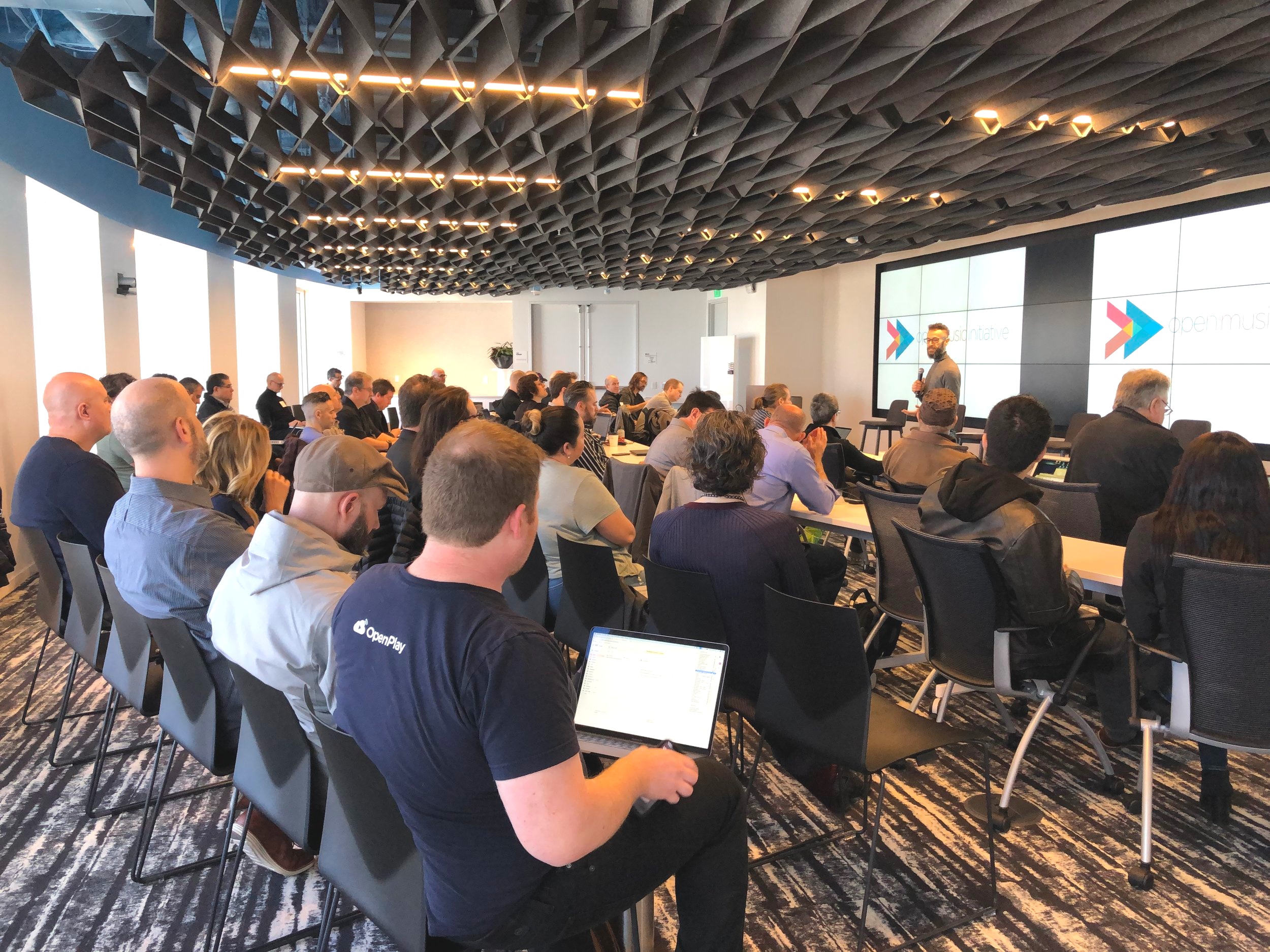Updates from the Members Meeting - Los Angeles 2019
The Members Meeting in Los Angeles on February 6 started with an insightful panel from four very different musicians: Adam Dorn, Holly Palmer, David Rosenthal, and Steve Vai. Open Music co-founder and Berklee VP of Innovation and Strategy Panos A. Panay steered the conversation of Berklee alumni from their process as business people and as artists, and how technology affects their work. There were too many great moments to recount them all here, but this one thought from Steve Vai set the tone of the day:
Too many musicians approach new technology saying ‘that s**t sucks, it's ruined my career,’ instead of ‘how can it serve me?’ - and then, ‘how can I make it better?’
Open Music is about making it better.
After that opening discussion, Vickie Nauman of CrossBorderWorks and a strategic advisor to Open Music provided an update on the Mechanical Licensing Collective (MLC), which just two days prior had the NMPA announcement of its Board of Directors and music publishing committee members. While the MLC should address many of the core issues around the publishing mechanical rights data, it will not resolve all the issues around music rights. She then posed to the group: What are the other problems you need solved? Do you have the tools that you need?
This led to an active discussion that ranged in a number of areas, including:
Simplification of the works registration process and better education on how to do it properly, so that better data goes into the system.
Capturing song data at point of recording when exported from the DAW (digital audio workstation).
Using the sound recording itself as a repository of metadata.
Managing conflicts in publishing ownership .
Issues around the assignment of International Standard Work Codes (ISWC).
There were many thorny issues around songwriter splits, from how it can be made seamless for musicians so determining contributions are not disruptive to the creative process, to enforcing minimum data set requirements by the digital services that include the splits. It was noted that many of the aggregators that serve the independent community don’t require splits before songs go into the larger digital music ecosystem. This is also a problem up through the major releases in the rush to get new songs into the market. Both come from the perception that this speeds up commerce on the front end, but it’s dumping sand in the engine when it comes to proper identification and royalty payments. Compliance in the supply chain from artist to label to DSPs will require a real culture change.
However, there are standards that have been in the marketplace, and Open Music aims to take an active role in promoting them toward wider understanding and more consistent adoption. To that end, Open Music is now working closely with DDEX, and invited Mark Isherwood, the Secretariat of DDEX, to give a high-level overview of the 17 current standards DDEX has made available in the six core areas of the music supply chain, and updates that will come to the market soon.
Similarly to DDEX, there are identifiers for music that are in use, and Open Music also wants to be part of promoting their more thorough implementation and then adherence to the standards. Paul Jessop of County Analytics, who works with the RIAA, updated the group on International Standard Recording Codes (ISRC), and the the updates to that program which are pending publication by the IFPI. He also gave an illuminating overview on when ISRCs should and should not change for a new recording of a previously released track.
From these discussions, it was even more clear that Open Music can play a valuable role within the industry as a neutral academic convener and educator in a sea of competing interests and rights management procedures. There was a moment when the artist panelists stated that they had never heard of the publishing standard ISWC identifier , surprising many in the room who had assumed were ubiquitously understood and used. This one moment crystallized for many in the room the schisms that still exist in the industry, and the need and value of Open Music’s place in the ecosystem.
The final half of the meeting was dedicated to a review of the proposed membership levels, governance structure and bylaws of the to-be-formed Open Music non-profit 501c-6 organization. These documents are available online here, both as downloadable PDF’s and Google Docs to comment directly online. The 60-day review period will be open until April 15, with the goal of ratifying the bylaws and becoming a standalone non-profit organization supported by industry membership dues at an upcoming meeting in May. There will be calls scheduled in March to discuss, and specific questions can be sent to us here.
Overall, we have made good progress from our annual meeting in New York in November towards having the organization formalized in just over six months. The value of having everyone in the room, from songwriters to service providers, cannot be overstated - Open Music is in a unique position to create a new paradigm for the music industry of the future.

